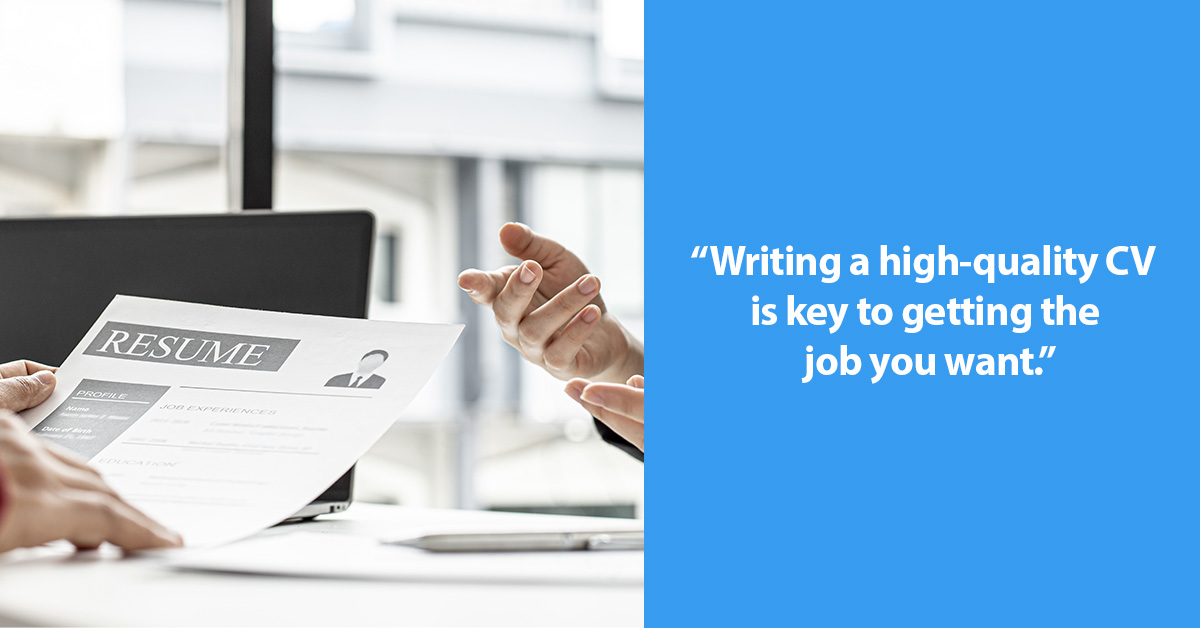
Writing a high-quality CV is key to getting the job you want when pursuing a new employment opportunity. A well-written CV can significantly increase the chances that you will be chosen by the company and its representatives from multiple potential candidates.
On the other hand, a poorly written CV can result in you being rejected by the people who read it (most often recruiters or HR managers) without giving you a chance to present yourself in person in an interview. So what do you need to do to make sure your CV is written correctly?
A FEW TIPS FOR WRITING A GOOD CV
- Always present your most up-to-date CV. If for example, your CV was last edited 3 years ago, not only is it missing information about your most recent job, but it’s also very likely that the levels of some of the competencies listed in your CV have changed (or you may have acquired new competences in the meantime that might help you get the new job).
- Make sure your CV contains all the necessary information about your experience and that it’s comprehensibly worded. If the information on your CV is ambiguous or some parts are missing, you may, for example, be mistakenly considered for a position in a field you have no experience in or are not interested in. Don't forget to include contact details, education, certifications, skills, linguistic abilities, or other information that may increase your chances of getting the job.
- List your professional experience in a uniform format and sort it chronologically. For better clarity, the best option is to have your professional experience described in a uniform way (i.e. not in a style where one experience is accompanied by an elaborate description of your responsibilities and the other barely by the employer’s name) and sorted in chronological order, ideally from the oldest to the most recent). It is recommended to always include:
- The company name and positions
- The period (from-to) you worked for the company (for example August 2017 to March 2020)
- A brief description of your activities and responsibilities, either as a short paragraph or in bullet points
- Have multiple language versions of your CV ready. Especially when applying for a job abroad or in an international company, it’s particularly advantageous if you can attach a CV in English or another language. Company adverts often state a requirement for a foreign language version of the CV (this is also the case at Barona).
- Hobbies form a specific section of a CV. Although for some people this part of the CV may seem unnecessary, there are recruiters and consultants who also pay attention to this area, for example, in order to find out how you as a personality fit with the company. Even though this area asks about the personal side of your life, you still have to keep a professional perspective on your CV: don't list things that could ultimately backfire and go against you rather than in your favor (such as listing gambling as your hobby).
WHAT TO AVOID IN A CV
- An overly long or chaotic CV. The length of your CV should be limited to a maximum of 2 pages. The format of the CV is also important; the CV should be structured, clear, and not cluttered with text.
- Gaps in your CV. An unexplained gap in your experience will immediately make most recruiters suspicious (we have also seen CVs being rejected right away because of such a gap). So even if you do have a gap in your professional experience on your CV (whether due to the pandemic, study, or personal reasons), try to at least partially justify it in your CV.
- An inappropriate photograph. Do not attach photographs that may be seen as unprofessional. If you decide to include a photo of yourself on your CV, make sure it is suitable for work purposes. A photo you use on social media or a selfie you took 5 minutes before completing your CV may not be the best choice.
- An inappropriate email address. We have the same recommendation for the email address where a potential recruiter would contact you. From a professional point of view, an email address with your name looks much better than, for example, an address like teddybear23@gmail.com or heartbreaker@hotmail.com, which may, at the very least, provoke mixed feelings in the HR department or your future superiors.
- Grammatical errors and slang. A high-quality CV should certainly not contain any grammatical errors or colloquialisms. If you are unsure of the spelling, to be on the safe side, you should have your CV proofread by a second person before sending it to the company.
- Never embellish your skills. If you are going through a standard selection process for a position, it is highly likely that recruiters or hiring managers will verify the essential information written on your CV. Therefore, try to estimate your skills as accurately as possible (e.g. your level of English or your ability to work with a certain program), because if it turns out during the interview that your real skills are weaker than those described on your CV, your chances of getting the job are likely to be reduced.
- A CV and a cover letter are two different things. As has already been mentioned several times in this article, a CV should have a clear structure and should not be a stream of continuous text. The continuous form is typical of a cover letter, which can be attached to the CV to explain why you are interested in the position, but it is never a substitute for a structured CV.
Keep in mind that your CV and cover letter are the tools meant to get you to an interview and ultimately land a job.
Topics: Career tips, Career zone


